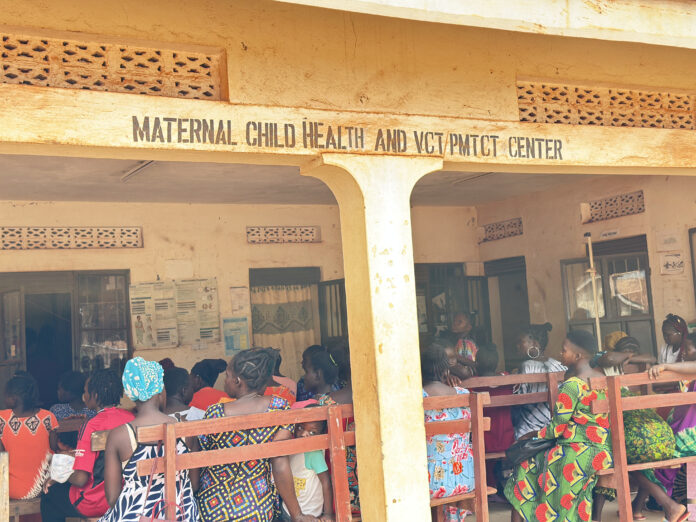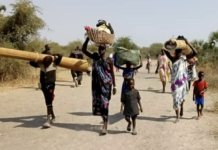Bazungua Primary Health Care Centre, located on the outskirts of Yambio town in Western Equatoria, is grappling with severe limitations in its maternity ward, which currently operates with just one bed. This is a growing concern for the dedicated midwife, Baragu Magaret John, who is responsible for the care of over five patients daily.
The facility is a government-run center, supported by various health partners in the country include UN children agency, UNICEF and Amref Health Africa in South Sudan
Magaret, a registered midwife at Bazungua PHCC, explained that her role primarily involves overseeing deliveries and providing postnatal care to mothers. However, the limited resources at the facility constrain their ability to serve the community effectively.
“We receive five patients daily, but that number is restricted by the capacity of our facility, which only operates during the day,” she said. “If we had the ability to keep the ward open overnight, we could accommodate eight to ten patients, but we are forced to close by 5 PM.”
The midwife also highlighted significant challenges due to the lack of essential medications. “When patients are in labor, we have medications that we are supposed to administer, such as Misoprostol for managing postpartum hemorrhage (PPH).
But in cases where PPH occurs, and we don’t have the necessary medication, we are forced to send patients to buy it from local clinics. During this critical period, there is a risk that the mother may not survive, which is a grave concern,” she explained.
Despite these challenges, Magaret emphasized the vital role the Bazungua PHCC plays in the local community. Many people living in the area, some of whom travel for hours to reach the health center, depend on it for their medical care. “Despite the lack of motivation for staff, we continue to come to work every day to provide service to the community,” she said.
Janet William, a mother of two, shared her experience at the health center. She had brought her son to Bazungua PHCC for treatment after he was diagnosed with malaria.
However, because the facility was temporarily out of anti-malarial drugs, Janet was told to buy the medication at a nearby clinic. “The lack of drugs is a recurring problem, usually due to delays in the supply chain,” she said.
Samson Juma, the Acting In-Charge of Bazungua PHCC and a registered nurse, echoed these concerns. He explained that the facility has more than twenty health care providers work in various departments including outpatient care, maternity, nutrition, and HIV/AIDS treatment, and serves more than 1,000 households in the area.
However, Juma stressed that the delay in receiving timely supplies of medications is a serious issue that needs urgent attention. He called on both the government and health partners to address the challenges facing the health center.
“There is an urgent need for an admission ward for inpatients, particularly for critically ill patients who require more intensive care. Currently, we can only admit patients for 24 hours because we are not open at night. This means some patients are discharged before completing their treatment, which delays their recovery,” Juma explained.
Bazungua PHCC is a beneficiary of UNICEF’s Health Transformation Project, which began four months ago. Juma is hopeful that this new initiative will bring improvements to the facility, including better staff motivation and a more reliable supply of essential medications.
“We are optimistic that this project will make a significant difference, particularly in addressing the issues of staffing, drug supply, and overall service delivery,” he said.
As the community continues to rely on Bazungua PHCC for their healthcare needs, the hope is that these challenges will be addressed soon, allowing the health center to provide better and more consistent care to those in need.





